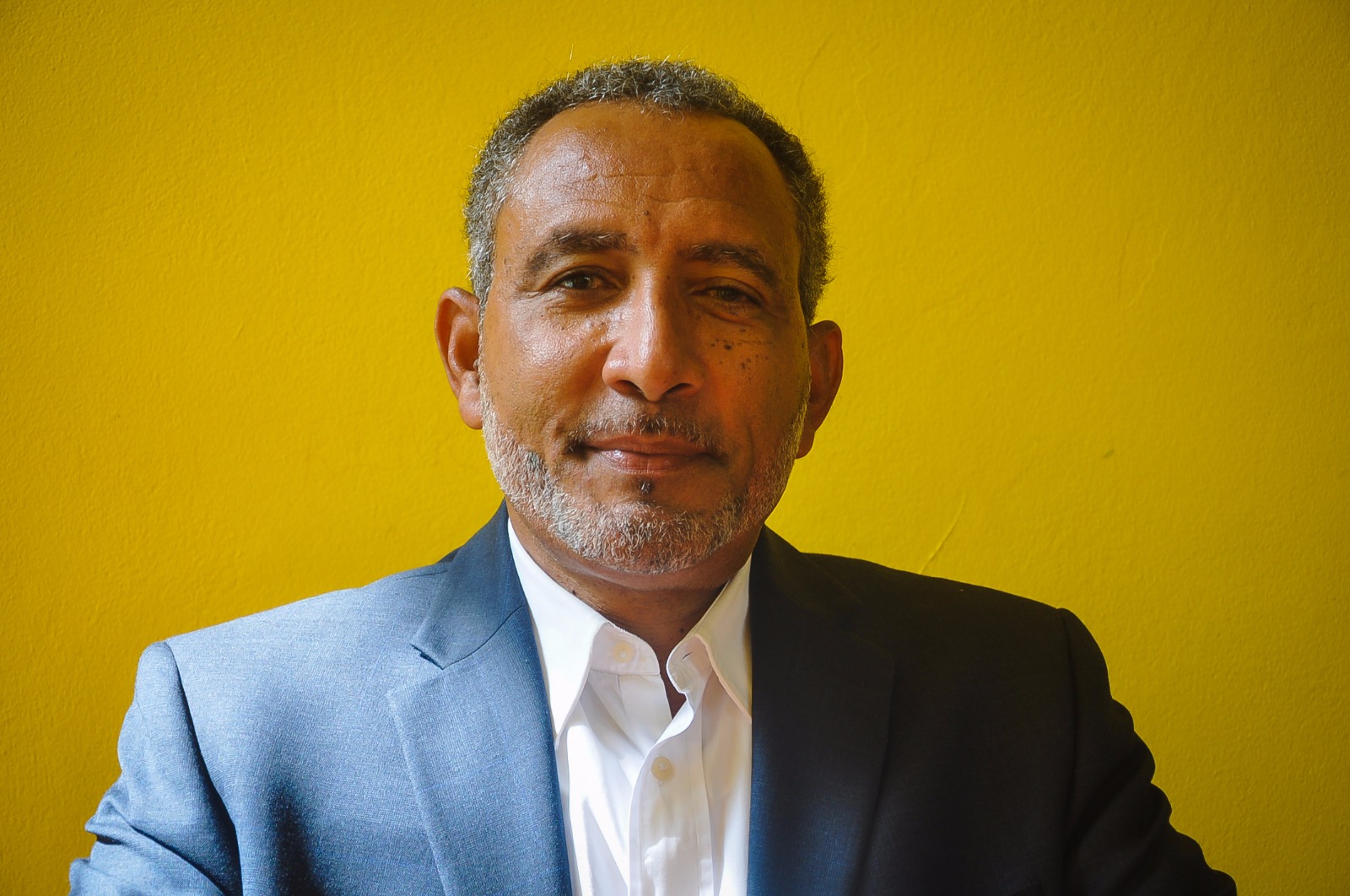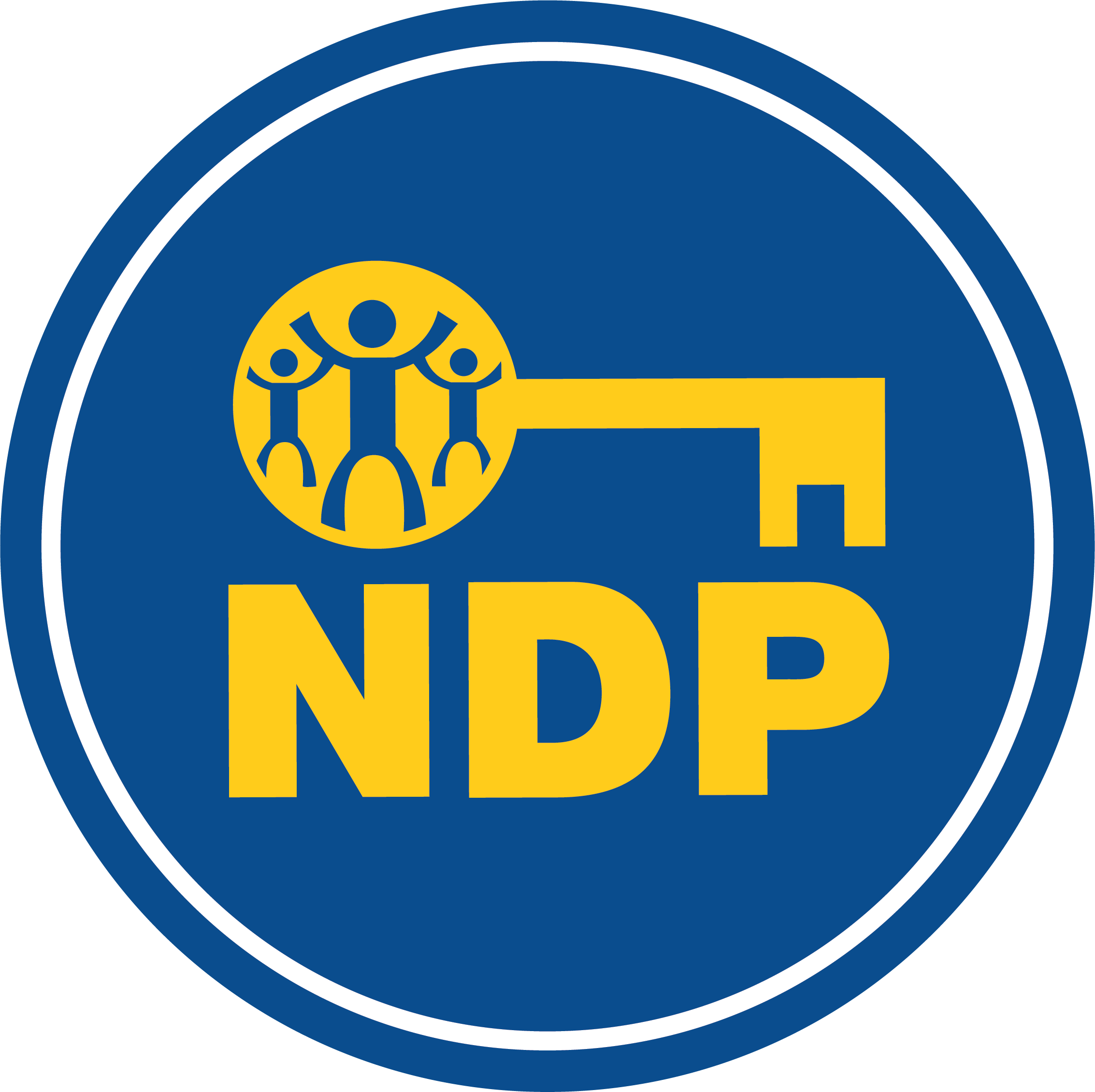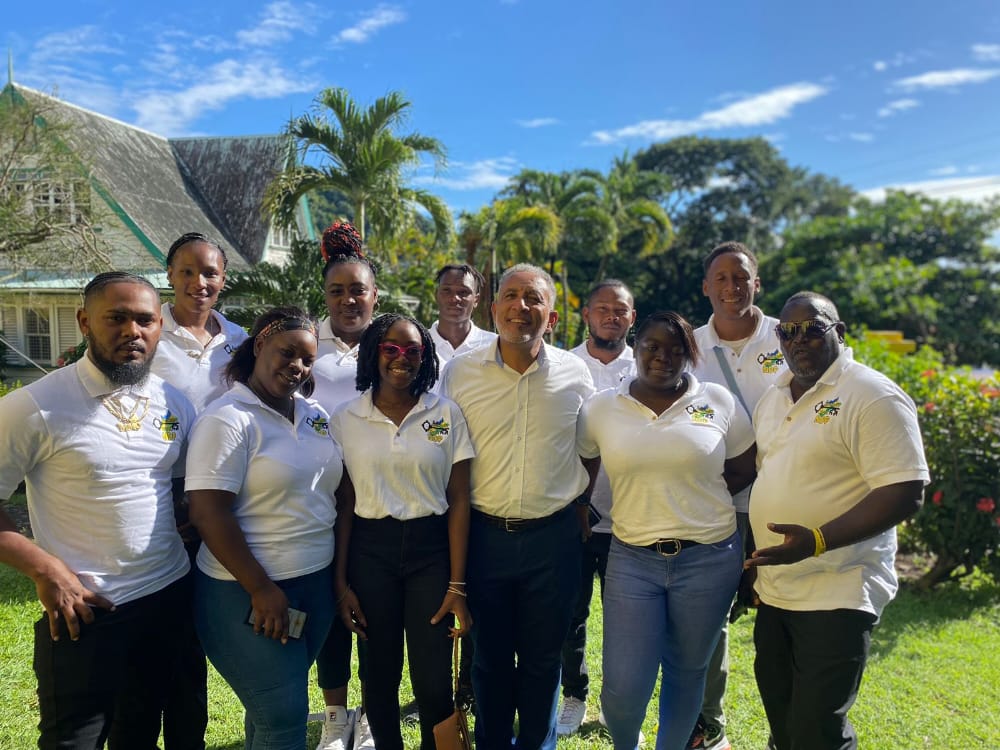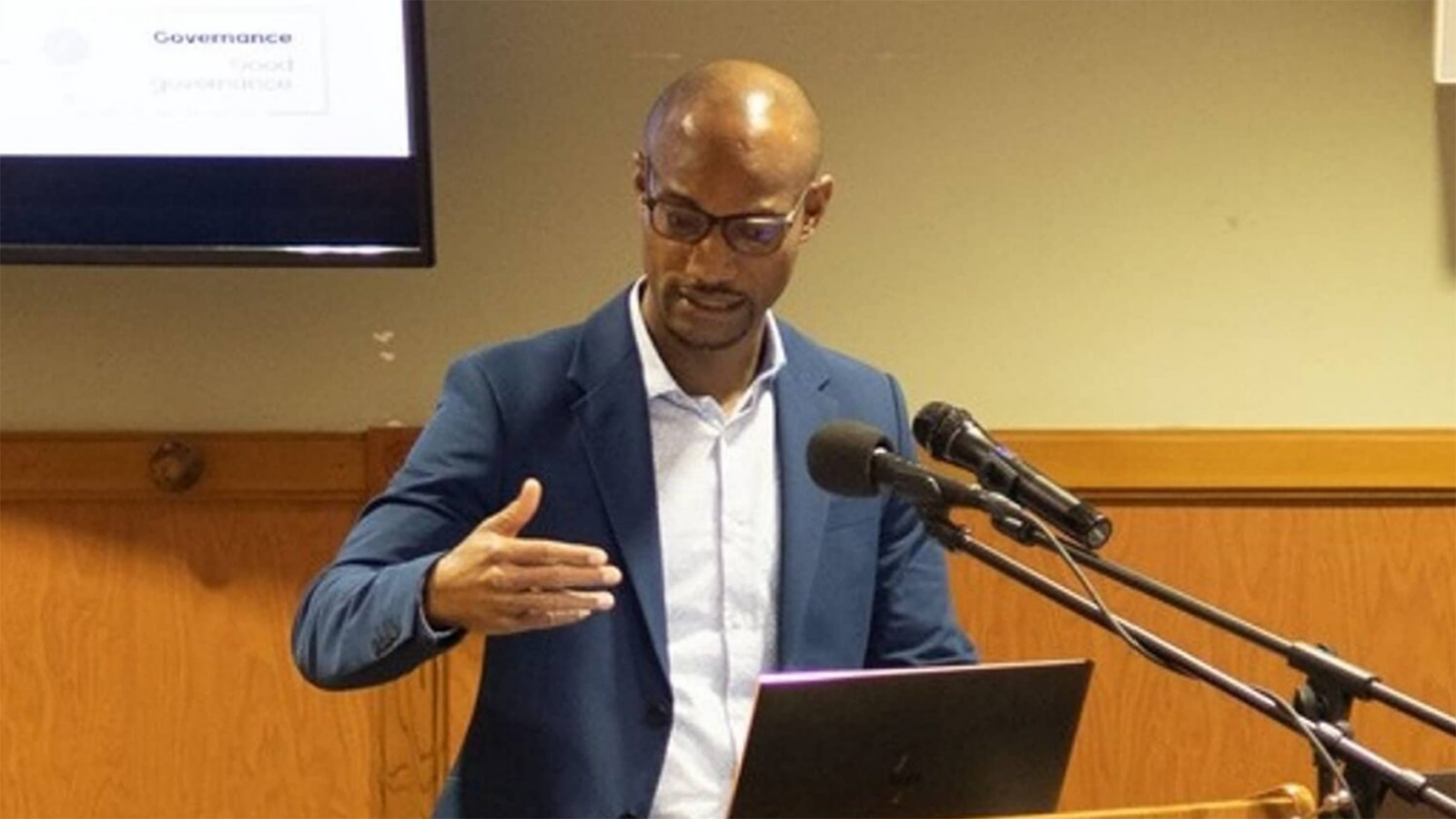Fellow Vincentians, greetings. Several weeks ago, when I spoke with you about conditions in our country, I promised to continue our conversation on important national issues. Education is such an issue. And with schools reopening, a discussion on education is not only timely, but necessary. Opening of school is an exciting time for our children. As parents, we want the best education for them. We know it is about preparing them for life. Few things can be more important. The start of the school year brings its own challenges and uncertainties. We accept them, and try to meet them as best we can.
What we cannot accept, however, is the chaos that too often comes with the opening of school. On opening day this year, many schools were not ready. Students at prep school were sent back home because the building was still being painted. Grammar school could not reopen because the regular school building was still not ready. And a temporary plywood school at Arnos Vale was being used by another school. Elsewhere, there was delays for a day or two, and even for an entire week. Official confusion now appears to be the norm. This could have been avoided with proper planning. This is not a time for unsubstantiated government statements about being ready. The minister of education should get his act together, and show leadership and competence. Our children and teachers deserve better.
We all know the importance of education. A good education is the best inheritance we can give our children. And it’s a sound investment in our country’s future. However, our education system must not place unbearable burdens on families. Parents should look to the new school year with hope, happy that their children are finally returning to their classroom. They should not have to worry unnecessarily about the high cost of textbooks, shoes, and school uniforms, and the ever increasing registration fees. Students preparing for CSEC and CAPE exams should only focus on what might be on their exam papers, and not on how they would pay for their subjects. For those hoping to attend university, they need to know that there is an affordable way to do so. That they won’t have to mortgage the family home and risk everyone’s welfare to pay for their further education.
Our education system must be relevant to the times, also. It must develop the whole child, and instill within him or her an abiding curiosity about the world, and enduring love of learning. At the moment, there is not enough support or focus on creating global citizens. Students have received their CSEC and CAPE results. There are some outstanding individual performances. And a few schools did very well. Congratulations to students, teachers, and parents for those results. But sadly, we know that this is not the whole story. It is only the good part.
The full picture is troubling, as far top many secondary school students do not make it to graduation within the normal five years, or ever. For example, like my alma mater, the Bequia Community High School. This year, the principal reported at the graduation ceremony that of 21 students who started in form one, only three made it to the graduating class of 2022, which had a total of 12 students. This is not a unique situation. Other schools across the country have poor graduation numbers. They are not getting the support they need from government. Consequently, they are failing our children. St. Vincent and the Grenadines has one of the highest rates of repeaters and dropouts in the OECS. This is a serious problem that must be fixed urgently.
It is accepted that a good education provides better options for young people, and is an effective way to combat crime and other antisocial behavior. The escalation in violent crime, especially gun related killings, demands urgent action from the government to fix our failing education system. So that it can provide positive options and more opportunities for our young people. The country needs less rhetoric from the prime minister and the government, and more constructive action. We must cater to the diverse needs of students by providing programs that engage students and motivate them to complete secondary school. This requires not slogans and photo ops, but a real plan to deliver for our children, their parents, and teachers.
Teachers, they play a vital role in our society. A good teacher inspires children and helps them to develop a love of learning. Yet, we see that many of our best and most experienced teachers remain excluded from the classroom because they were fired by the government for not taking the COVID-19 vaccine. This misguided and hardheaded approach by the government has left schools without sufficient teachers to start the year. Over 200 teachers remain out of work, yet the government says there are not enough teachers and they must hire relief teachers. Why hire inexperienced people to act as teachers, when there are over 200 experienced, competent teachers, ready to return to work, to teach our children? This makes no sense. The government’s stubborn response has been to tell teachers they must reapply to get back their jobs. This is without any assurance of actually getting back their jobs and pensions and benefits. The teachers, rightly, see this as adding insult to injury.
The solution is to reinstate the teachers now and welcome them back to the classroom. No one is buying the government’s legalistic excuses and vague promises. And the teachers have said they are not taking the bait. So what must be done? Instead of having an adversarial relationship with teachers, we must stand with them. They are a vital part of our education system, working with students, parents, and the community to nurture our children. We must do all we can to maintain that positive relationship and make it productive. We must also ensure fairness and equity for teachers. In this regard, we support the teachers and public servants in their call for a salary increase, starting with 10% over two years. An NDP government would agree to that increase. We also agree that the teachers who were fired by the government because of the vaccine mandate should be reinstated and compensated.
Despite the self praise and boasts of this government, we have a lot of ground to make up in our education system. Plasters and platitudes cannot mask the failure of the system anymore, and cannot comfort students and parents who are losing out. To make things better, I recommend the following. We must improve conditions in schools, by maintaining the buildings regularly so that they don’t become uninhabitable and have to be closed for long times for repairs. This approach would avoid the spending of millions of dollars to build temporary plywood schools, to replace the rundown ones. Those millions could be better spent in a planned, regular maintenance program.
And on other amenities, our children are part of the 21st century economy. So our schools must prepare them for it. The new technologies used in online learning, during the pandemic, have opened our eyes to promising possibilities. Let us embrace them and integrate them permanently into the way we teach and learn. Giving a child a laptop is not the fulfillment of that objective, but merely the beginning of it. This also requires reliable, high speed internet service in all schools. And in fact, in every home. High speed internet is no longer an optional luxury, but a necessary part of education. We must upgrade teacher training to make effective use of information technology in everyday teaching. The now familiar platforms and techniques of online learning should not be abandoned just because we have returned to the traditional classroom. Let them be our new normal.
Further, it is not only about how we teach, but also about what we teach. The present curriculum and programs do not adequately prepare all students for life. I am calling for a comprehensive review of our curriculum, at all levels, to ensure it supports, challenges, and prepares our children for the future. For too long, our education system has focused on traditional academic programs that culminate with CSEC, CAPE, and a university degree. Our schools should also be equipped to provide and assess students in skills and technical aptitudes needed for jobs and our economic development. The Caribbean Vocational Qualification, CVQ, is part of the process of achieving certified skill workers, promoted by the CARICOM single market and economy.
Though this CARICOM initiative was established in 2007, it was not until 2016, almost a decade later, that St. Vincent and the Grenadines was granted approval to offer Caribbean Vocational Qualification. And while other CARICOM countries have been offering CVQs at levels one and two with much success at the secondary school level, St. Vincent and the Grenadines has in effect been offering limited skills training to limited numbers of out of school use. Indeed, since St. Vincent and the Grenadines has been left behind regional counterparts because the necessary instruments to facilitate implementation at the secondary level are not in place. So we see why, after 21 years in office, Prime Minister Gonsalves, what lament that there are not enough skilled tradespersons to take up jobs in our construction industry. And that despite high unemployment here, the government has asked to allow foreign workers to take jobs in hotel construction. We must turn this around.
Therefore, we recommend that the following strategies be implemented. One, ensure that technical and vocational education is well integrated into the education system so that every child has the opportunity for a comprehensive education. Two, ensure competency based curricular, linked to the CVQ framework, in all secondary schools and other suitable settings in the workplace and the wider community. And three, establish a qualification framework that enables learners to move seamlessly between academic and vocational qualifications, in formal and less formal education settings.
Also, we must revamp and expand The YES Programme to provide opportunity for on-the-job training, while earning a living wage. Further, increase opportunities for skills development, and lifelong learning, through vigorous and well-managed continuing education programs. I’m a big supporter of such programs. In addition to technical and vocational programs, we must teach agriculture in all primary and secondary schools. We are, after all, an agriculture nation. Further, to develop the whole person, the whole child. And promote our culture, music, art, dance, and other forms of cultural expression must be regarded, not merely as optional courses, but as essential components of a modern education. So they must be taught at all levels and in all schools. In keeping with this, and the recognized importance of shaping our unique national identity, instruction in the Garifuna language should be made widely available in our schools.
Education should not be unaffordable and a burden for families. The rising cost of living continues to hurt families. At this time of the year, school books, uniforms, bus fares, and daily lunches cut deeply into family budgets. We believe that VAT should be reduced to lower the living costs for everyone. I spoke about this several weeks ago.
And we must do other things too. Registration fees for secondary schools are too much. At a time when families are facing pressures across the board, we believe registration fees should be eliminated. Further, CSEC and CAPE subjects must be paid by the states. The state parents and students should not have to go begging friends and strangers for money to pay for their subjects. Having admitted all students to secondary school, and encouraged them along the way, it makes good sense to complete the process by paying for their final exams for their subjects. For too many families, the joy of securing a place at university is dampened by the fear of expensive student loans. Our student loan rates are among the highest in the region. We have a plan to cut those rates in half, to four and a half percent.
While the ULP have become consumed with their internal divisions, and their shelved succession plans, the rest of us, who care more about our country, must plan for the future. We in NDP have a plan to deliver at all levels of our education system. It supports students, teachers, and parents. Most importantly, it is a plan that will build our education, and skills levels, to meet the needs of the economy. And to prepare our people for jobs now, and in the future.
My friends, this is not the last word you will hear from me about education. I also want to hear from you, however, you, our people. I especially want to hear from parents, teachers and, most importantly, students about the problems you encounter and your ideas about how to fix them. As part of this process, I will be convening a round table, maybe more, with educators, employers, and other interested persons, to further discuss education and chart the way forward. I want a more effective and responsive education system that delivers for all. I believe we can do better. And I know that working together, we will do better. I wish our students and teachers all the best for the new school year and beyond. My friends, thanks for listening. God bless you. And may God bless our beloved country.





